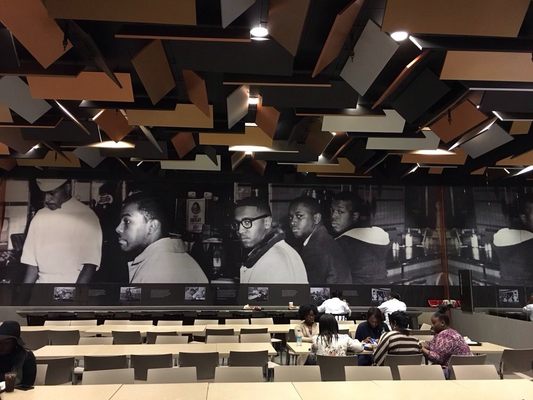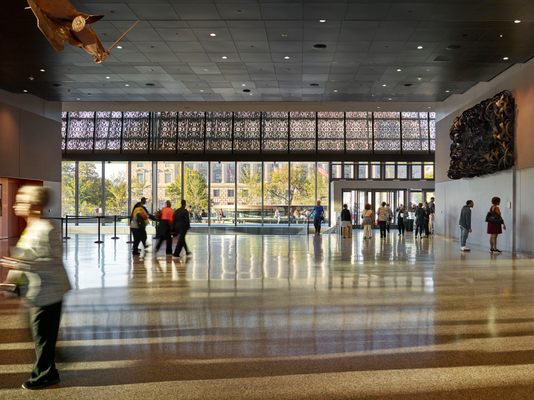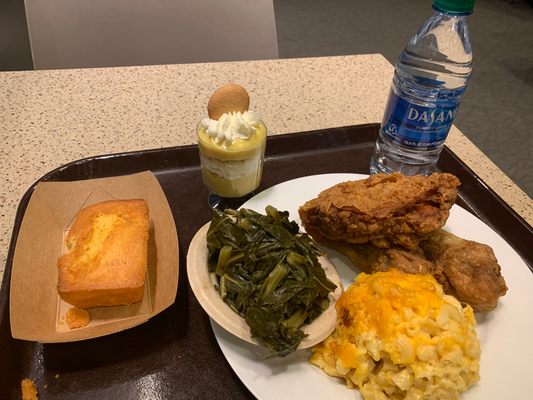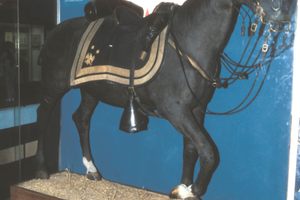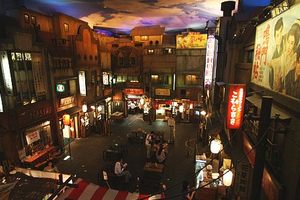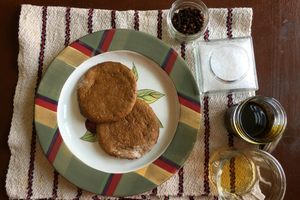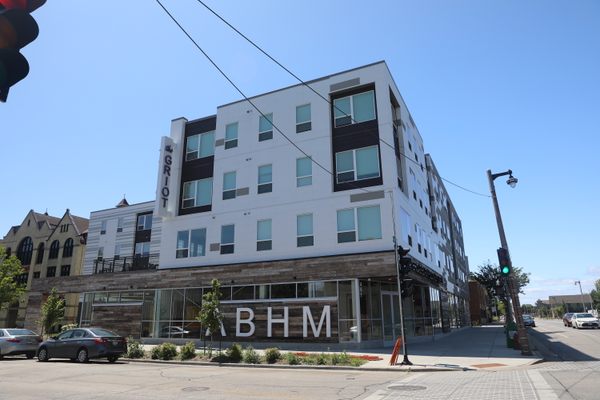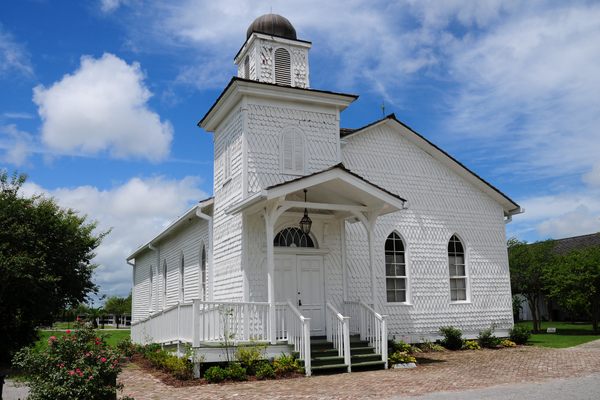About
Thomas Downing was the oyster king. In 19th-century New York City, white customers knew the African American restaurant proprietor for his much-touted seafood specialties. What they didn't know: Downing used the elite oyster bar's basement to house people fleeing slavery, as a stop on the underground railroad. Today, you can order an oyster pan roast celebrating Downing at the Sweet Home Cafe, located inside the Smithsonian's National Museum of African American History and Culture.
Divided into four regions, reflecting the Agricultural South, the Creole Coast, the North States, and the Western Range, the cafeteria pays homage to the rich African, Native American, Caribbean, Latin American, and European influences in African American cooking. From a Gullah take on the Hoppin' John (a traditional Southern New Year's staple) to Western-style pan roast rainbow trout with cornbread and mustard green stuffing, visitors can sample executive chef Jerome Grant's playful takes on regional cultural classics.
The restaurant's decor offers a guide to the importance of food in African American culture and the political struggle this cuisine has nourished. "Our food is our flag," reads a quote from food writer Michael W. Twitty, emblazoned on the wall. "It sits at the intersection of the South, Africa, the Caribbean and Latin America." Meanwhile, a photograph of the 1960 Greensboro Woolworth's Lunch Counter sit-in spans the entire length of the cafeteria, reminding visitors of the people who fought to guarantee African Americans the right to enjoy equal access to public spaces like this very restaurant.
Sweet Home Cafe isn't the only Smithsonian effort to make food part of visitors' overall cultural experience. A few blocks away at the National Museum of the American Indian, visitors can sample Native American foods at the Mitsitam Cafe. Like Mitsitam, Sweet Home Cafe demonstrates that there's no such thing as a single "American" cuisine and celebrates the African Americans who have played an outsized role in shaping the country's culinary culture.
Related Tags
Know Before You Go
Passes are required to enter the museum. Both advance and day-of passes can sell out quickly, so be sure to plan your visit accordingly and arrive early. Meanwhile, the cafe line has been known to last for more than an hour and a half, though the photographs and historical information decorating the walls makes for fascinating reading while you wait. Not all dishes are available all the time, but if available, visitors recommend the Brunswick Stew and the Gospel Bird Family Platter.
Published
March 28, 2019
